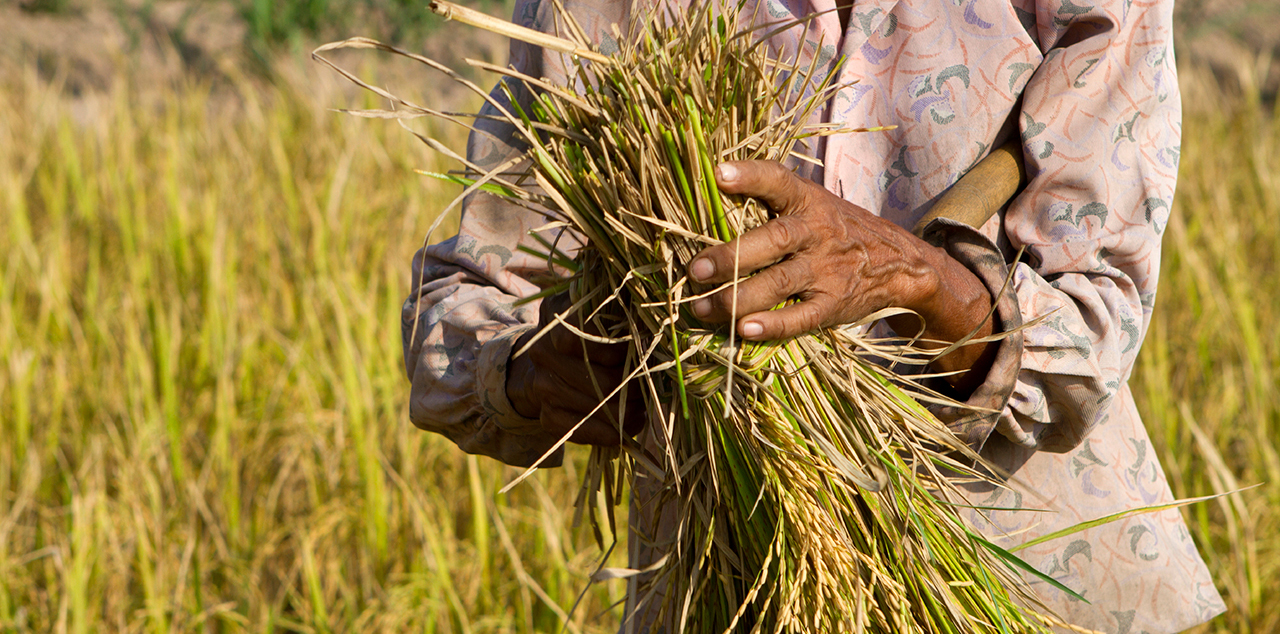Adaptation Fund Climate Finance Readiness Workshop in Morocco Brings Attention to Water Scarce MENA Region
September 6-8 Workshop in Rabat, Morocco Key for Keeping Momentum on Way to COP22 in Marrakech this November
Rabat, Morocco (September 6, 2016) — The Adaptation Fund (AF) is bringing together some 50 participants from more than a dozen Middle East and North Africa (MENA) countries for a workshop in Rabat, Morocco this week aimed at enhancing climate finance readiness and access for a region that is increasingly vulnerable to climate change and water scarcity.
Co-sponsored by the Fund’s accredited National Implementing Entity (NIE) for Morocco, the Agency for the Development of Agriculture (ADA), the September 6-8 workshop will also serve as a pivotal momentum-gathering point for countries on the road to COP22 in Marrakech, Morocco in early November.
“The MENA region is one of the world’s driest and urban coastal areas are also prone to floods. These are precisely the adverse effects of climate change faced by vulnerable communities in developing countries that the Adaptation Fund was set up to support through its concrete projects,” advised Naresh Sharma, Chair of the Adaptation Fund Board. “We hope to help more populations in the region become resilient to climate change.”
“It’s important to continue the momentum gained from the historic Paris Agreement into COP22, and it’s especially fitting and significant that it will be held in Morocco as we continue to raise attention to these urgent climate challenges and the need for adaptation solutions,” added Marcia Levaggi, Manager of the Adaptation Fund Board Secretariat.
Workshop attendees include the AF’s NIE for Jordan, the Ministry of Planning and International Cooperation (MOPIC), an AF regional implementing entity based in Tunisia – the Sahara and Sahel Observatory, other organizations interested in attaining NIE accreditation, a few of the Fund’s accredited multilateral implementing entities (MIEs) which are implementing projects in the region, as well as governments, NGOs, and international organizations.
Expected topics include a review of the AF’s groundbreaking Direct Access modality, which provides developing countries the opportunity to receive climate finance and develop projects directly through accredited NIEs. Success stories from NIEs, including Morocco’s ADA and Jordan’s MOPIC, will be presented, as well as best practices in accreditation procedures and project development processes.
The AF’s gender, environmental and social policies, which promote human rights, conservation and equal access to AF resources for women and men, will also be detailed. Its Readiness program, which offers regional climate finance workshops, webinars, technical assistance and south-south cooperation grants, will be discussed, as well.
Perhaps most significantly the workshop will include a discussion of adaptation challenges and priorities for Morocco and the MENA region, which finds itself increasingly dry, embroiled by extreme heat, dependent on agriculture that is highly sensitive to climate change and in need of urgent adaptation solutions.
The AF funds two NIE projects in the region, one in Jordan implemented by MOPIC to adapt the agricultural and water sectors to climate change through sustainable technologies, and another in Morocco through ADA to improve adaptive capacities of the water sector in the oasis zone, diversify incomes and improve ecosystem resilience. AF also funds three MIE projects in the region, in Lebanon through the International Fund for Agricultural Development, in Egypt through the World Food Program, and in Eritrea through the United Nations Development Program.
The importance of the workshop being held in Morocco is significant, as it follows another held by AF earlier this year in Casablanca for the Francophone region and comes just a couple months away from the COP22 Climate Conference in Marrakech in early November. The AF was included in language accompanying the previous COP21 Agreement in Paris, which stated that AF may serve the agreement subject to a process that has already started and will continue in Marrakech.
The urgency of adaptation was further elevated in both the Paris Agreement and Sustainable Development Goals.
ABOUT the ADAPTATION FUND
Since 2010, the Adaptation Fund has committed US $354.89 million to support 54 concrete, localized climate adaptation and resilience projects in 48 countries, with more than 3.6 million direct beneficiaries.
Communications Contact: Matt Pueschel, mpueschel@adaptation-fund.org or +1-202-473-6743
Attachments
| Attachment | Type | Size |
|---|---|---|
| Press release September 6, 2016 | 227 KB |



